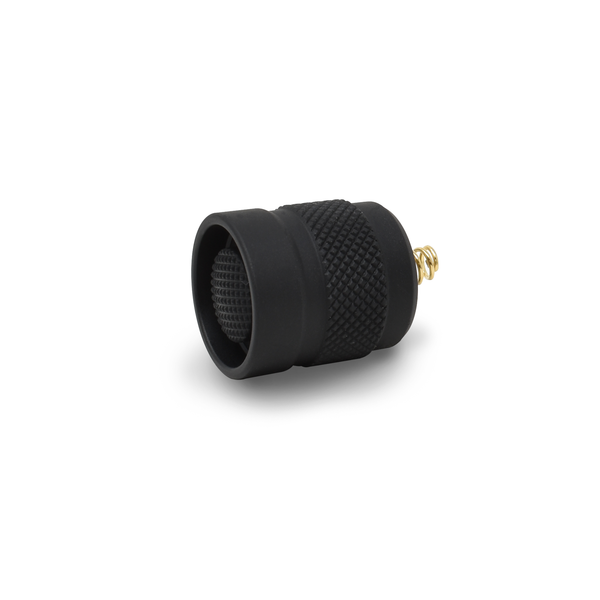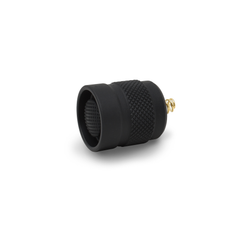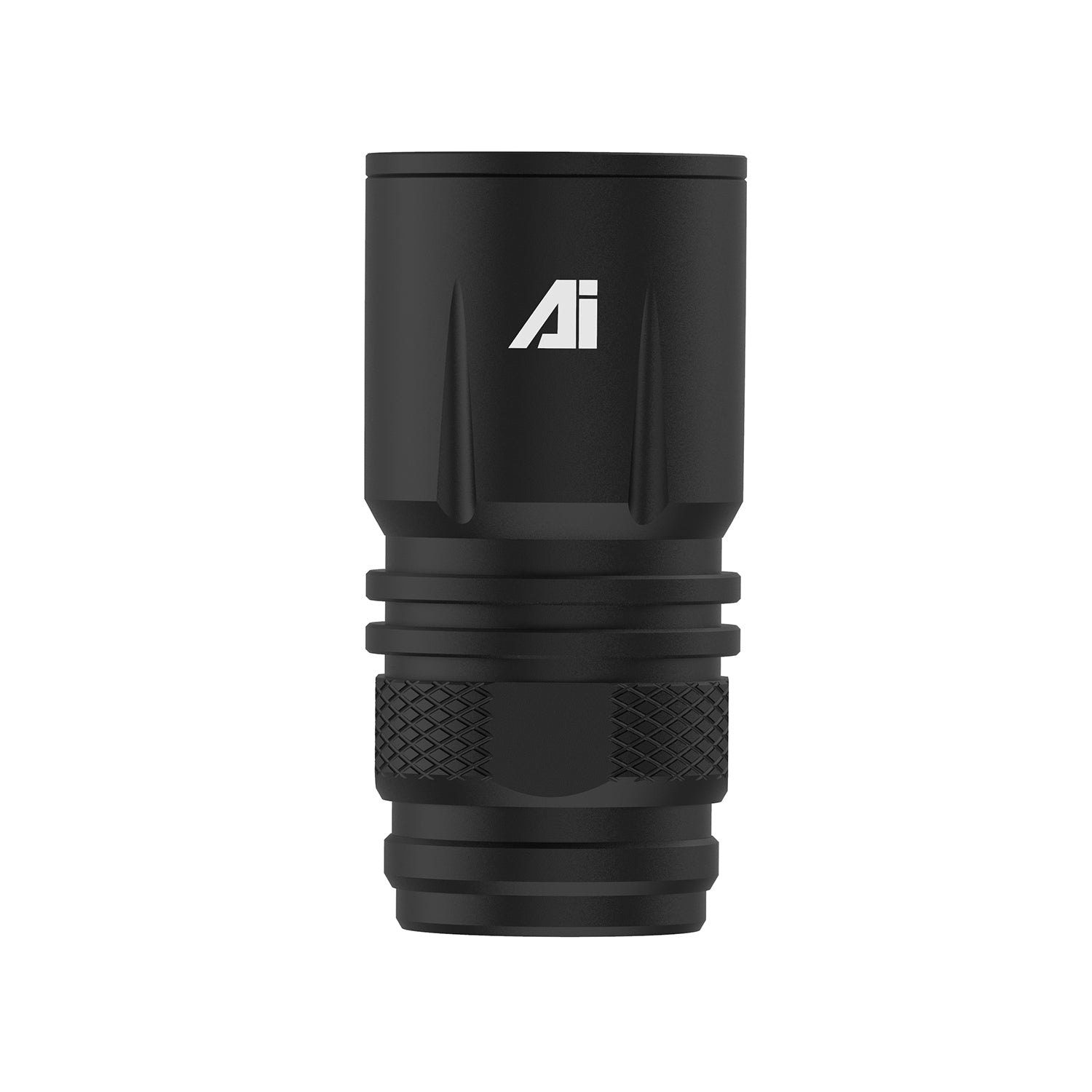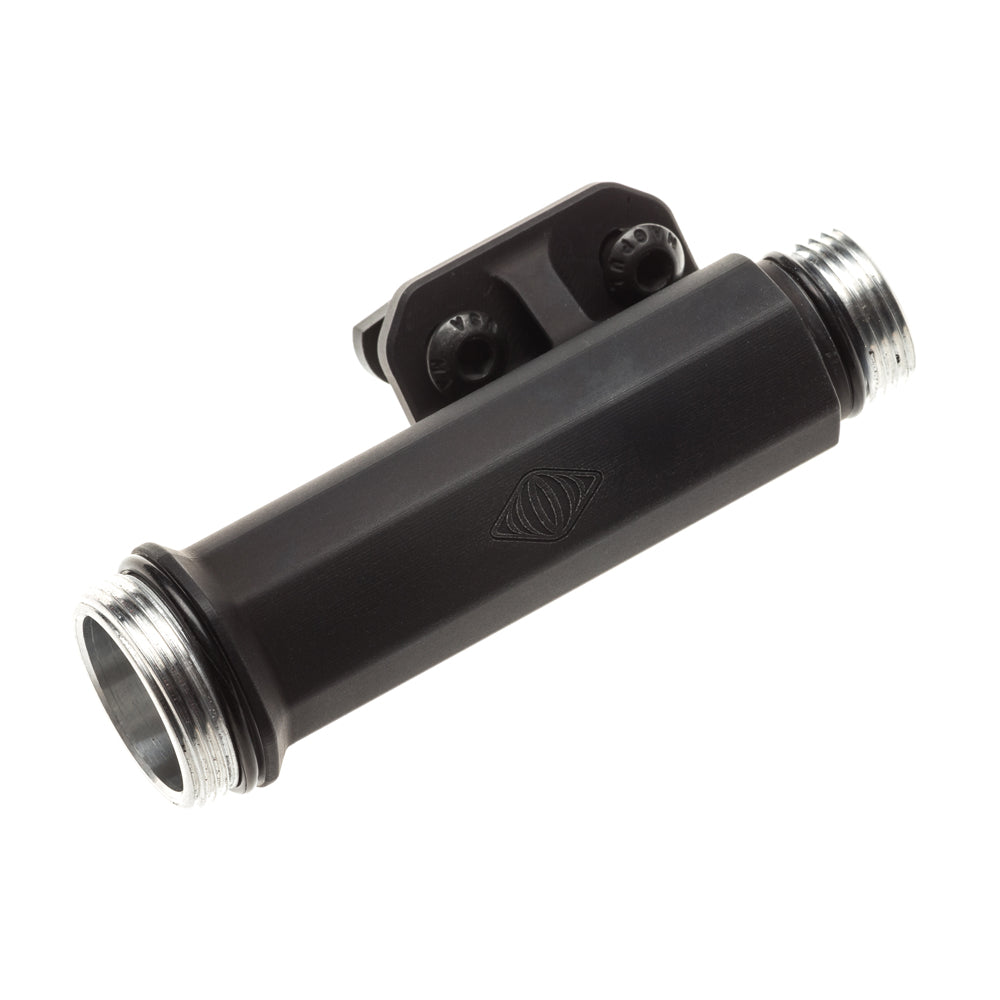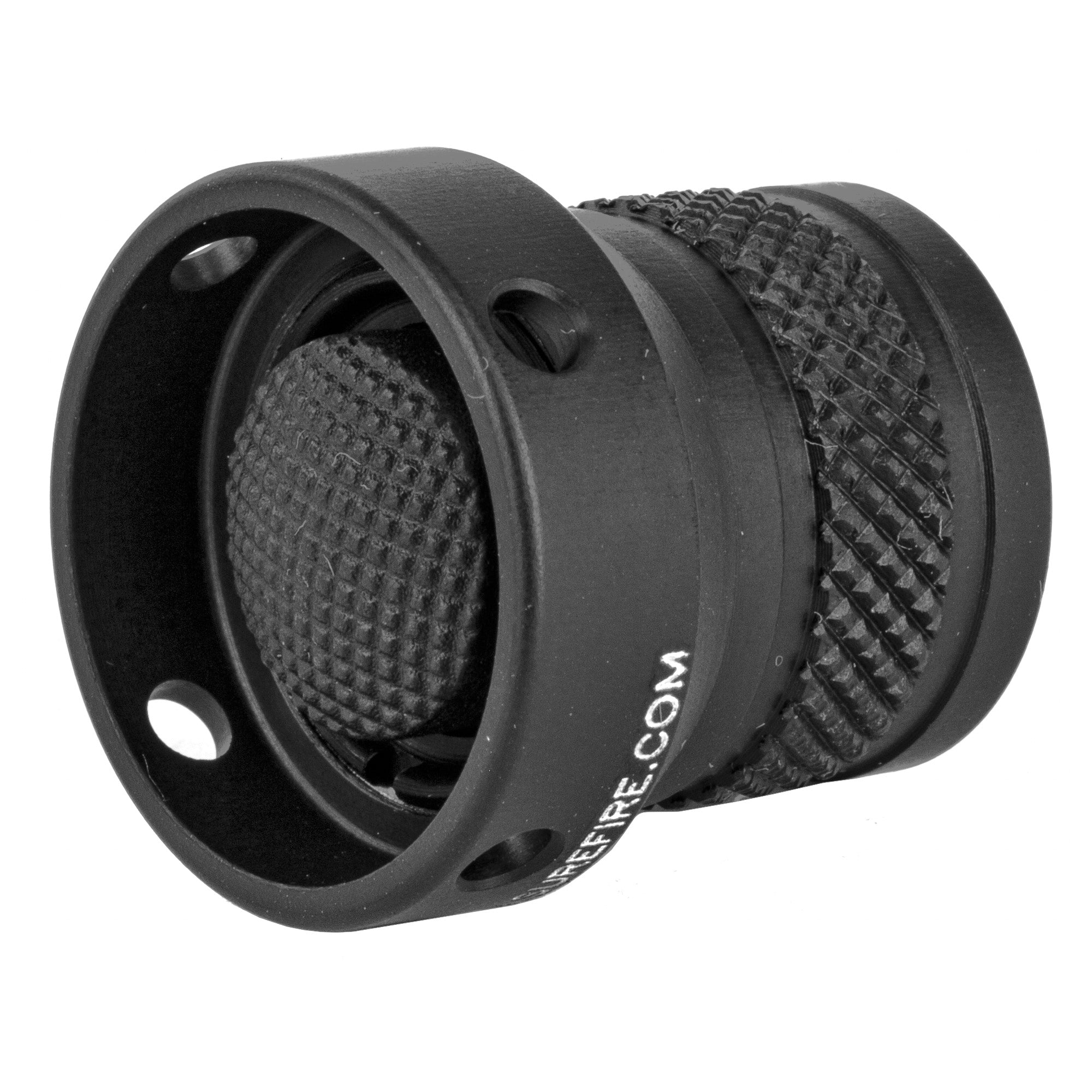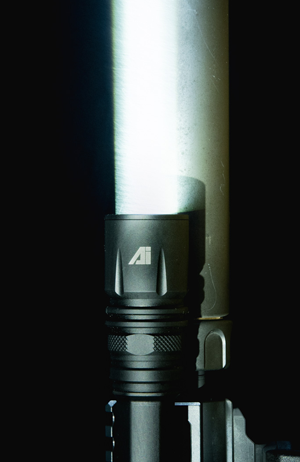Atibal Illumination Ai-TC Tail Cap Assembly
The Ai-TC tail cap gives the user the ability for both constant and momentary illumination. For constant illumination, fully depress the tail cap button until it clicks. To deactivate the constant illumination, fully depress the tail cap again to turn it off. For momentary illumination, semi-depress the tail cap. The AI-TC tail cap also features a recessed button that prevents accidental illumination during use or in storage.
The Ai-TC tail cap utilizes a gold plated spring with higher spring tension allowing for more efficient connectivity and being able to handle constant recoil.
The Atibal Illumination Ai-TC Tail Cap Assembly offers simple integration with most 18650 & 18350 Light Bodies.
|
FEATURES: |
| Compatible with Ai-650 / Ai-350 Light Bodies |
| Rear Button Operation |
| Compatible w/ 18650 / 18350 Light Bodies |
| Precision Machined Aluminum Alloy, Hard Coat Anodize |
| Water Resistant |

What is Proposition 65?
- Proposition 65 requires businesses to provide warnings to Californians about significant exposures to chemicals that cause cancer, birth defects or other reproductive harm. These chemicals can be in the products that Californians purchase, in their homes or workplaces, or that are released into the environment. By requiring that this information be provided, Proposition 65 enables Californians to make informed decisions about their exposures to these chemicals.
- Proposition 65 also prohibits California businesses from knowingly discharging significant amounts of listed chemicals into sources of drinking water.
- Proposition 65 requires California to publish a list of chemicals known to cause cancer, birth defects or other reproductive harm. This list, which must be updated at least once a year, has grown to include approximately 900 chemicals since it was first published in 1987.
- Proposition 65 became law in November 1986, when California voters approved it by a 63-37 percent margin. The official name of Proposition 65 is the Safe Drinking Water and Toxic Enforcement Act of 1986.
What types of chemicals are on the Proposition 65 list?
The list contains a wide range of naturally occurring and synthetic chemicals that include additives or ingredients in pesticides, common household products, food, drugs, dyes, or solvents. Listed chemicals may also be used in manufacturing and construction, or they may be byproducts of chemical processes, such as motor vehicle exhaust.
What does a warning mean?
If a warning is placed on a product label or posted or distributed at a workplace, a business, or in rental housing, the business issuing the warning is aware or believes that it is exposing individuals to one or more listed chemicals.
By law, a warning must be given for listed chemicals unless the exposure is low enough to pose no significant risk of cancer or is significantly below levels observed to cause birth defects or other reproductive harm.
What does the phrase “known to the State of California to cause [cancer] [birth defects or other reproductive harm]” in a Proposition 65 warning actually mean?
Under the Proposition 65 statute, “known to the state to cause [cancer] [birth defects or other reproductive harm]” means the chemical has been added to the Proposition 65 list by one of four listing mechanisms.
Who administers Proposition 65?
The Office of Environmental Health Hazard Assessment (OEHHA) administers the Proposition 65 program. OEHHA, which is part of the California Environmental Protection Agency (CalEPA), determines in many cases whether chemicals meet the scientific and legal requirements for placement on the Proposition 65 list, and administers regulations that govern warnings and other aspects of Proposition 65.
Who enforces Proposition 65?
The California Attorney General's Office enforces Proposition 65. Any district attorney or city attorney (for cities whose population exceeds 750,000) may also enforce Proposition 65. In addition, any individual acting in the public interest may enforce Proposition 65 by filing a lawsuit against a business alleged to be in violation of this law.
Lawsuits have been filed by the Attorney General's Office, district attorneys, consumer advocacy groups, and private citizens and law firms.

